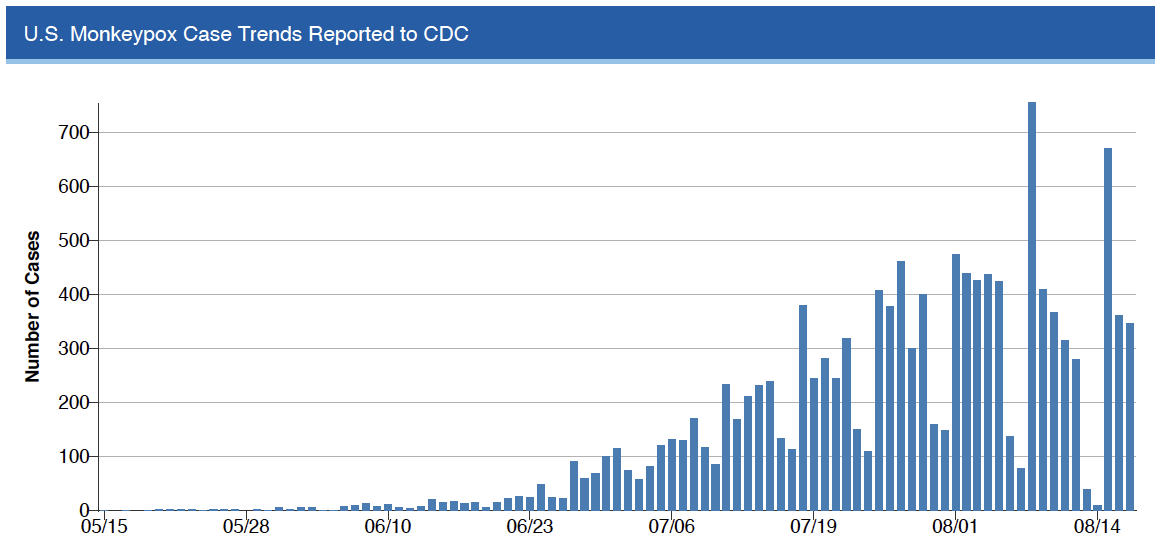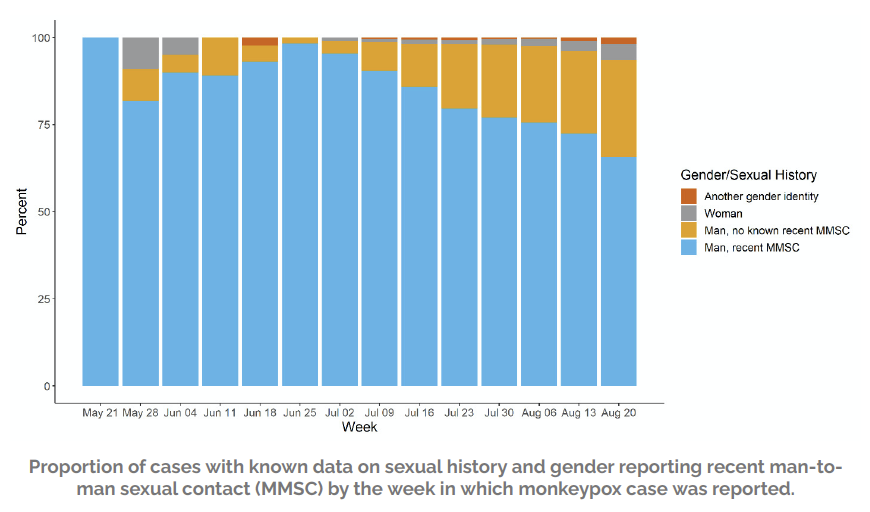
- MPV diagnoses have modestly declined. As of September 2, 19,962 people had been diagnosed with MPV in the U.S. Nationally, the number of people newly diagnosed with MPV appears to have slightly declined in recent days, and declines in new cases have been reported in Atlanta, Chicago, Los Angeles and San Francisco. California has overtaken New York as the state with the highest number of people with diagnosed MPV.

- MPV cases remain unacceptably high. Case levels remain extremely high, and it is unclear if the modest reduction in new diagnoses will be long-lasting or merely a blip. As NMAC’s last newsletter reported, the share of new cases among Black men is increasing over time. Altogether, men of color account for about two-thirds of new MPV diagnoses.
- While MPV continues primarily to affect gay/bisexual men, there has been an increase in MPV diagnoses in other populations. Among newly diagnosed individuals, the proportion of men who report recent sex with other men has fallen over time – to 66% for the most recent cases. Women now account for 5% of new MPV diagnoses, but the most notable increase has been among men who report having had no recent same-sex contact. The number of children diagnosed with MPV remains small, but it is increasing, including three children in Georgia who acquired MPV at home.

- Vaccine approaches are changing in some cities and states. Some cities, including Washington, D.C. and San Francisco, are relaxing eligibility requirements for the vaccine, expanding beyond earlier efforts to limit eligibility to men who had sex with multiple men in the previous 14 days. Some cities, such as New York, are now starting to offer second doses, as the recommended intradermal mode of giving the vaccine has eased supply shortages. (The intradermal method requires less vaccine than the under-the-skin method but appears to be as effective in generating an immune response).
- A small study indicates that TPOXX is safe and effective as a treatment for MPV. There is no approved treatment for MPV, but the federal government is allowing off-label use of TPOXX, a drug approved for the treatment of smallpox. This new observational study of 25 people with diagnosed MPV found that TPOXX was well-tolerated with minimal side effects. Among people who took TPOXX, MPV lesions were resolved and no new lesions developed.
- There is greater media attention to the human dimensions of MPV. The New York Times ran an extensive article profiling the experiences of people who have recovered from MPV, with a focus on stigma, social isolation and frustrations in trying to access essential services. Gay publications have often provided first-person accounts of community members who have recovered from MPV.